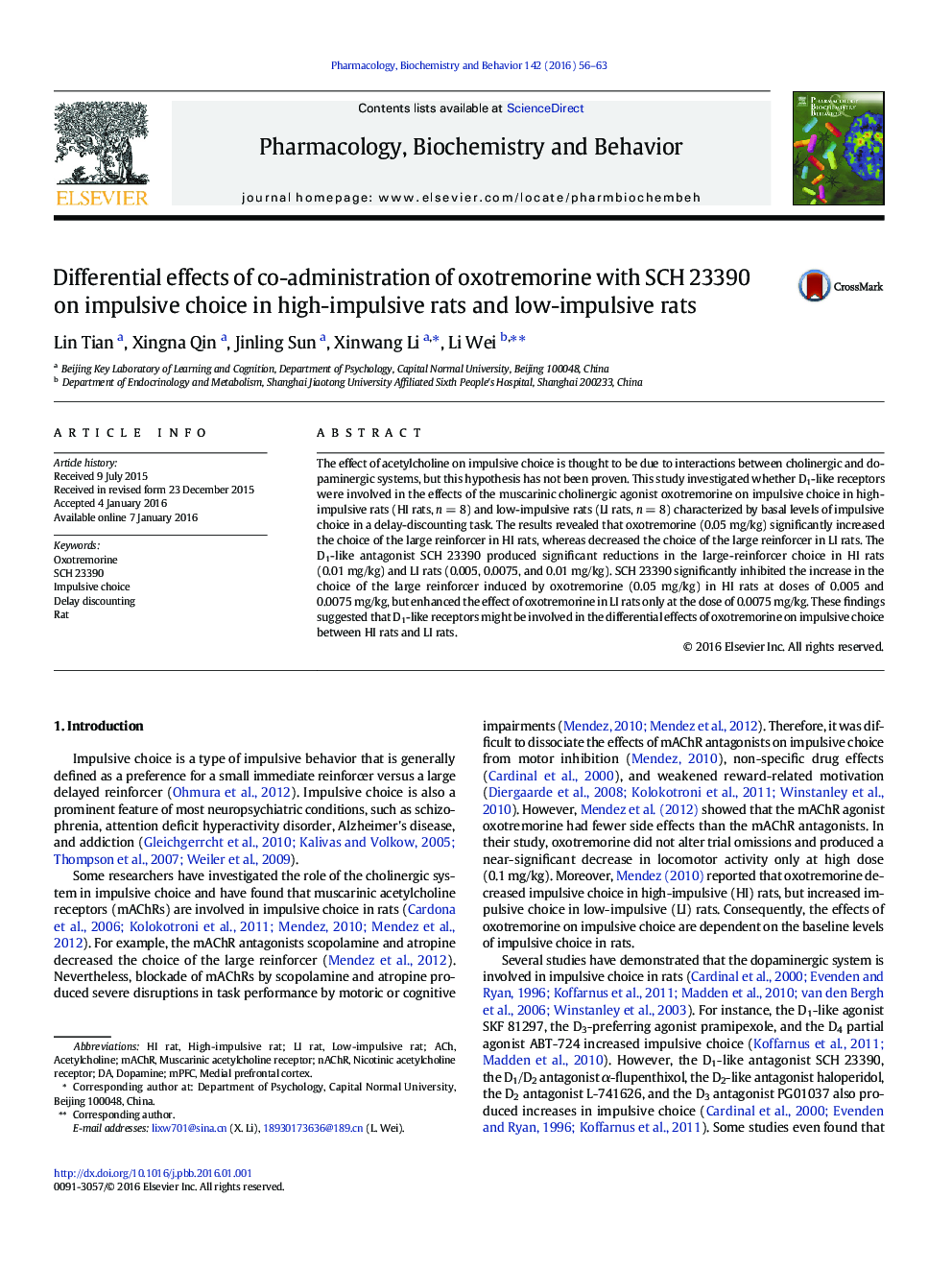| Article ID | Journal | Published Year | Pages | File Type |
|---|---|---|---|---|
| 2012634 | Pharmacology Biochemistry and Behavior | 2016 | 8 Pages |
•Oxotremorine decreased impulsive choice in high-impulsive rats.•Oxotremorine increased impulsive choice in low-impulsive rats.•SCH 23390 antagonized the effect of oxotremorine on impulsive choice in high-impulsive rats.•SCH 23390 enhanced the effect of oxotremorine on impulsive choice in low-impulsive rats.•D1-like receptors might be involved in the effect of oxotremorine on impulsive choice.
The effect of acetylcholine on impulsive choice is thought to be due to interactions between cholinergic and dopaminergic systems, but this hypothesis has not been proven. This study investigated whether D1-like receptors were involved in the effects of the muscarinic cholinergic agonist oxotremorine on impulsive choice in high-impulsive rats (HI rats, n = 8) and low-impulsive rats (LI rats, n = 8) characterized by basal levels of impulsive choice in a delay-discounting task. The results revealed that oxotremorine (0.05 mg/kg) significantly increased the choice of the large reinforcer in HI rats, whereas decreased the choice of the large reinforcer in LI rats. The D1-like antagonist SCH 23390 produced significant reductions in the large-reinforcer choice in HI rats (0.01 mg/kg) and LI rats (0.005, 0.0075, and 0.01 mg/kg). SCH 23390 significantly inhibited the increase in the choice of the large reinforcer induced by oxotremorine (0.05 mg/kg) in HI rats at doses of 0.005 and 0.0075 mg/kg, but enhanced the effect of oxotremorine in LI rats only at the dose of 0.0075 mg/kg. These findings suggested that D1-like receptors might be involved in the differential effects of oxotremorine on impulsive choice between HI rats and LI rats.
